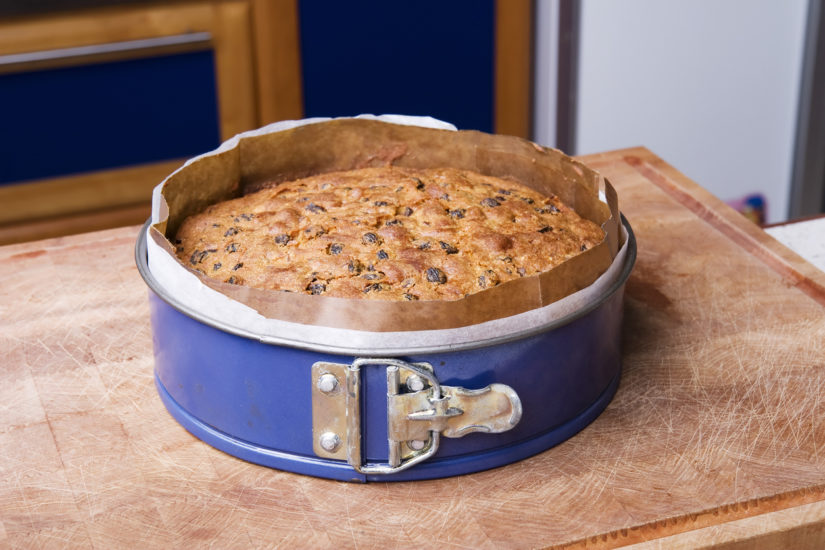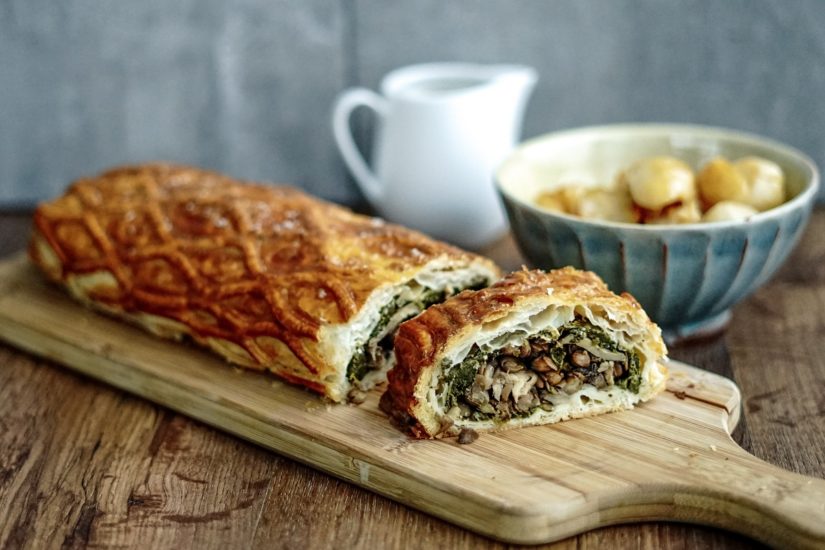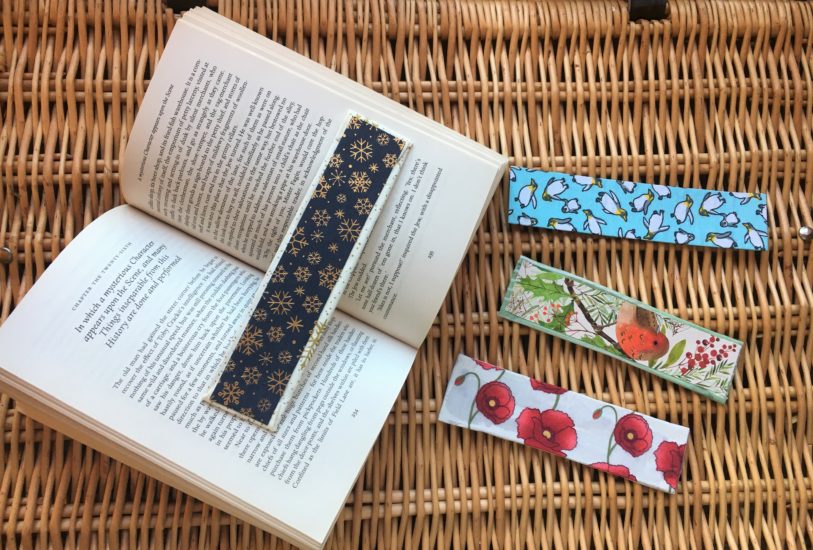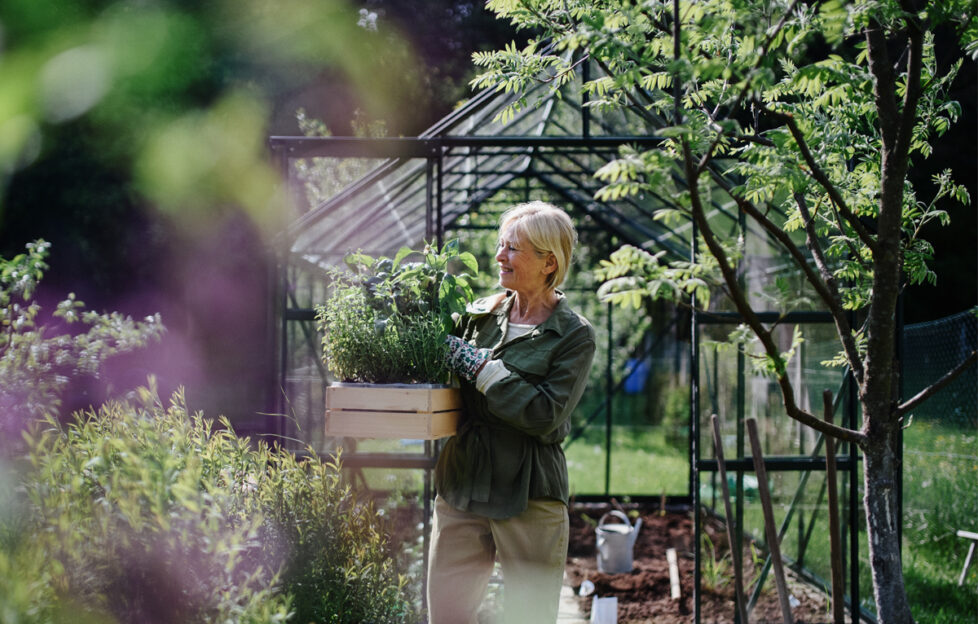
Last week, we celebrated World Earth Day, with the theme “invest in our planet“. To continue that message, The Greenhouse People, have shared their top sustainable gardening tips to try at home. You can benefit the environment without spending a penny!
Create your own compost
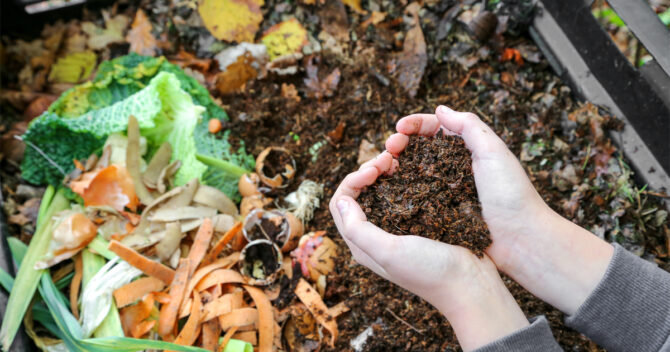
Shutterstock.
Food waste contributes six percent of global greenhouse gas emissions. So, by creating your own compost from your food waste, you’re reducing that impact. As well as creating nutrient-rich compost that is great for your garden!
Start by collecting all your food scraps in a small bin. Find a container for your compost and add layers of twigs and straw. Alternate moist ingredients (food waste) with dry ingredients (leaves, wood). On the pile, add manure to start the composting process.
Cover it to keep it moist and turn it every couple of weeks. Then, use it to give love back to your garden!
Switch up your water
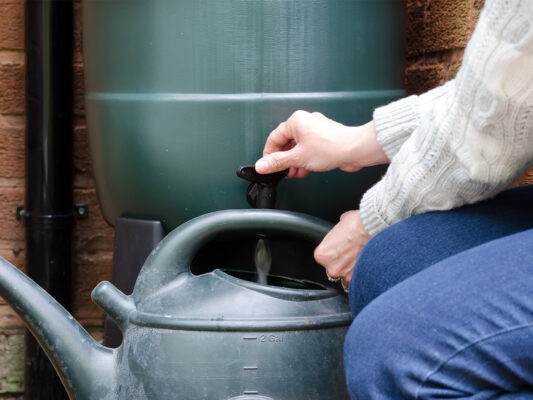
Shutterstock.
Automatic garden sprinklers and hoses are convenient but can use an excessive amount of water. Which is bad for the environment and bad for your pocket!
Consider switching to a watering can and filling it with rainwater. This is free, easy and even better for your plants. Especially smaller beds and pots.
Use indigenous plants
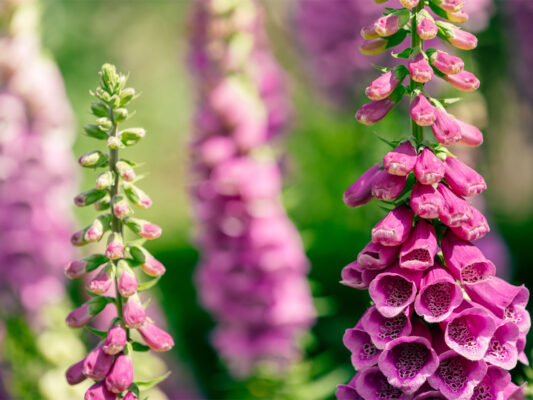
Shutterstock.
Plants that are native to the UK are cheaper and much more environmentally friendly. They create the prefect habitat for insects and wildlife—birds, bees and butterflies love them!
They also require less watering and work for more reward. Introduce some colour into your garden with native flowers like honeysuckle, lily of the valley, foxgloves and ox-eye daisies. For more greenery, try trees like silver birch, holly, white willow and English oak.
Make your own insecticide
We love insects to thrive in our gardens, but some of them are not healthy additions, like slugs. Pesticides can help our plants but they often contaminate their surroundings, making them bad for the environment.
Slug pellets are now banned in the UK but you can use natural remedies from around the house instead! Household ingredients like garlic, baking soda, hot peppers and dishwashing soap make effective insecticides for your garden. Keep them mixed up in a spray bottle and spray your plants when needed.
Get more sustainable gardening tips from our website!

